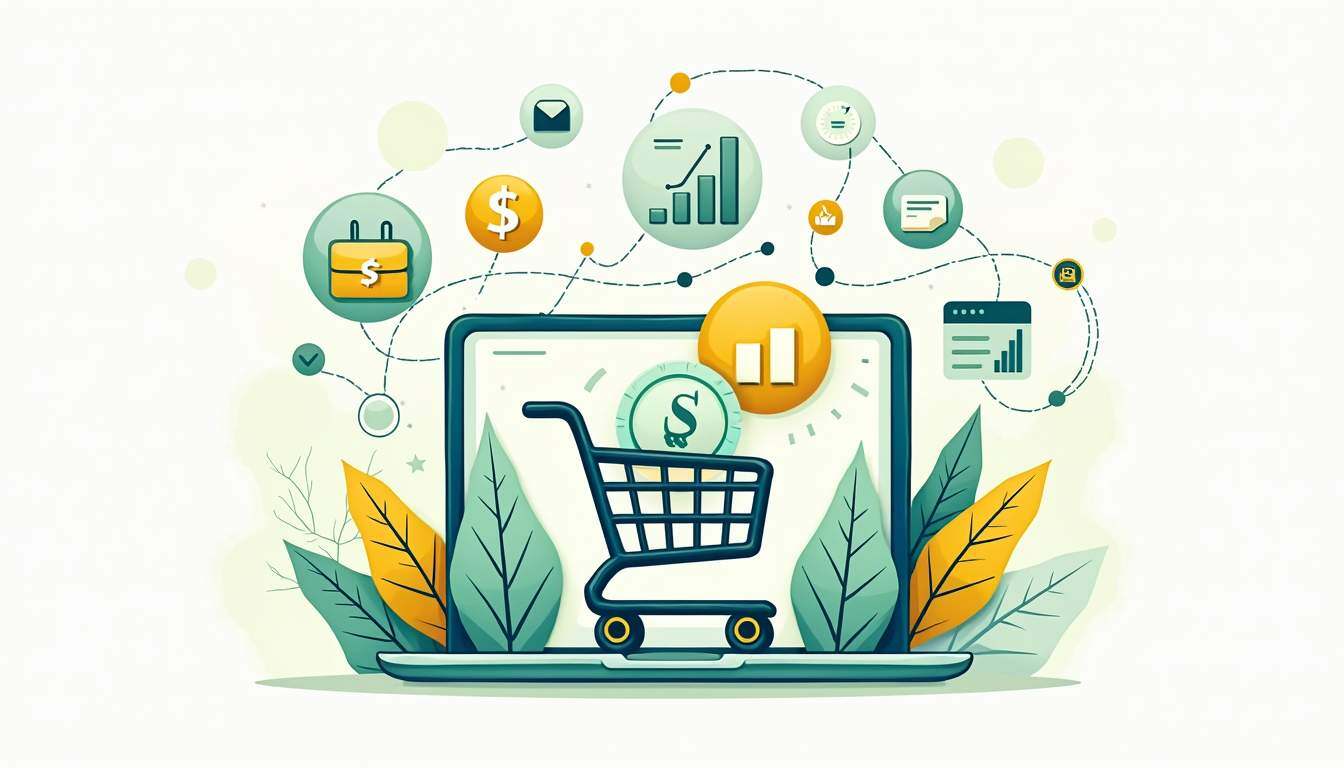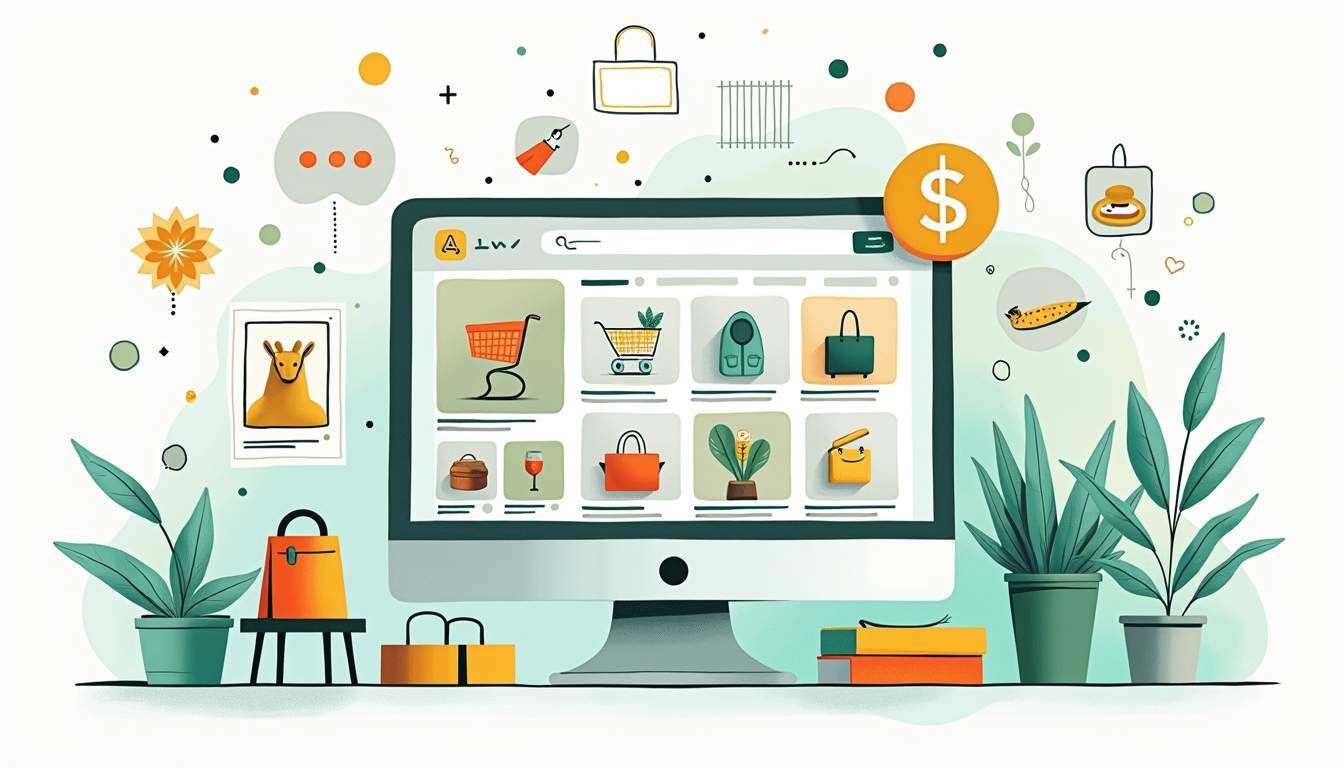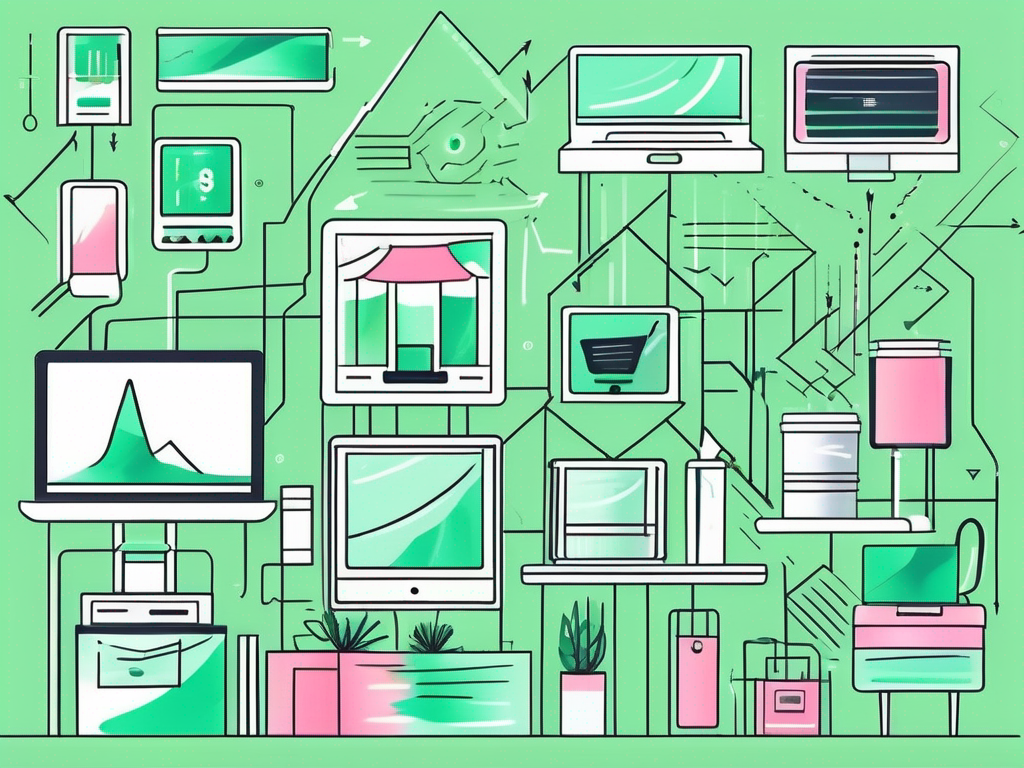Share this
What are Ecommerce Transactions Going to Look Like 10 Years From Now?
by Shipfusion Team on Feb. 20, 2025

The way people buy and sell online is constantly evolving, and the next decade will bring even more significant changes to ecommerce transactions. Emerging technologies will redefine payment processing, personalization, and customer experiences, while new business models will shift how brands interact with consumers.
From AI-driven shopping experiences to blockchain-powered security, the future of ecommerce will be shaped by innovations that enhance efficiency and trust. As digital currencies gain mainstream adoption and augmented reality transforms online browsing, businesses must prepare for a landscape where convenience and personalization are paramount.
This article explores what ecommerce transactions will look like in the next 10 years and how businesses can stay ahead of these shifts.
AI-Driven Personalization
Ecommerce transactions will increasingly be shaped by AI-powered personalization. Over the next decade, advancements in machine learning will enable businesses to refine product recommendations, dynamic pricing, and even customer support. AI will analyze vast amounts of data to predict buying behavior, tailoring the shopping experience to each customer in real time.
Imagine a scenario where a customer visits an online store and sees a homepage that dynamically adjusts based on their past interactions, preferences, and current shopping trends. AI-driven chatbots and virtual assistants will facilitate seamless transactions by answering queries, processing orders, and even negotiating prices based on real-time demand. Personalized pricing and AI-generated discounts will become standard, further enhancing conversion rates.
The rise of generative AI will also impact ecommerce by creating hyper-personalized marketing campaigns. AI will generate personalized email copy, social media ads, and website content, ensuring that each customer sees the most relevant messaging. As AI tools become more advanced, the line between human-driven and AI-driven transactions will blur, making ecommerce shopping experiences more intuitive and efficient.
Blockchain and Secure Payments
Blockchain technology will play a larger role in ecommerce transactions by enhancing security, transparency, and efficiency. Today, transactions rely heavily on third-party processors like banks and payment gateways, but blockchain has the potential to decentralize this process, reducing costs and eliminating fraud risks.
Smart contracts—self-executing agreements built on blockchain—will streamline order processing and payment settlements. These contracts can automatically enforce terms between buyers and sellers, ensuring that transactions are secure and completed only when both parties fulfill their obligations. This will particularly benefit high-value ecommerce transactions, where trust and verification are critical.
Additionally, blockchain’s immutable ledger will enhance supply chain transparency. Consumers will be able to verify product authenticity, track shipments in real time, and confirm ethical sourcing. As more businesses adopt blockchain-based payments and tracking systems, trust in online transactions will significantly increase, reducing chargebacks and fraud.
Cryptocurrency
Cryptocurrency adoption in ecommerce is likely to grow as digital currencies become more mainstream. While Bitcoin and Ethereum have already made their way into select online marketplaces, the next decade will see broader integration, particularly with stablecoins that offer price stability compared to traditional cryptocurrencies.
As central banks explore digital currencies (CBDCs), ecommerce platforms may integrate them to provide faster, low-cost global transactions. Crypto payments will reduce reliance on traditional banking systems, enabling customers in emerging markets to shop online without needing a credit card or bank account. This will unlock new consumer bases and expand ecommerce into regions that have historically faced financial barriers.
Furthermore, crypto-based loyalty programs will emerge, allowing customers to earn and redeem tokens across multiple brands and platforms. With lower transaction fees and improved security, cryptocurrency will redefine how cross-border transactions occur, making global ecommerce more accessible and efficient.
Voice and AR Commerce
Voice commerce is set to revolutionize how people shop online. With the continued growth of smart assistants like Alexa, Google Assistant, and Siri, more consumers will use voice commands to browse products, compare prices, and complete transactions hands-free. AI-driven voice shopping will improve accuracy, allowing users to make complex purchases without ever needing to type or click.
Augmented reality (AR) will further bridge the gap between online and in-store shopping. Consumers will be able to visualize products in their real-world environments before making a purchase. AR fitting rooms for clothing, virtual home design tools for furniture, and AR-driven try-before-you-buy experiences will minimize returns and boost customer confidence.
As 5G and AR technologies evolve, ecommerce businesses will create immersive shopping environments that replicate the physical retail experience. Personalized AR shopping assistants will guide users through the buying process, making digital transactions feel as interactive as in-store experiences.
Subscription and DTC Models
The next decade will see a continued rise in subscription-based ecommerce and direct-to-consumer (DTC) models. Businesses will shift from one-time transactions to recurring revenue streams, offering everything from curated subscription boxes to replenishable essentials delivered automatically.
DTC brands will leverage data-driven insights to create highly personalized subscription models. Customers will receive tailored product recommendations based on usage patterns, and AI will predict when they need refills, ensuring seamless reordering. This model fosters brand loyalty while reducing customer acquisition costs, making it a sustainable approach for ecommerce businesses.
Additionally, brands will further optimize their supply chains to offer exclusive perks such as same-day delivery and custom shipping boxes for subscribers. As customer expectations continue to evolve, companies that prioritize convenience and exclusivity will stand out in the increasingly competitive ecommerce space.
What Are Ecommerce Transactions Without On-Time Shipments?
Even with all these technological advancements, one aspect of ecommerce remains unchanged—fulfillment. Customers expect their purchases to arrive quickly and in perfect condition. AI, blockchain, and AR can improve the shopping experience, but the final touchpoint—the delivery—defines customer satisfaction.
Fast, accurate fulfillment ensures that every technological advancement in ecommerce transactions translates into a five-star customer experience. Reliable shipping, efficient inventory management, and real-time tracking play critical roles in building trust and customer loyalty.
Shipfusion specializes in handling ecommerce fulfillment with precision. From managing inventory across multiple warehouses to ensuring on-time deliveries, we helps brands maintain the high standards that modern customers expect. Request a quote from a fulfillment specialist today.
Share this
You May Also Like
These Related Articles

9 Brand Loyalty Strategies Your Ecommerce Business Can Steal

How to Maximize the Customer Experience In Ecommerce

How to Find the Right Ecommerce Marketplaces for Your Business
- March 2025 (23)
- February 2025 (26)
- January 2025 (37)
- December 2024 (16)
- November 2024 (23)
- October 2024 (22)
- September 2024 (27)
- August 2024 (9)
- July 2024 (8)
- June 2024 (5)
- May 2024 (8)
- April 2024 (8)
- March 2024 (6)
- February 2024 (6)
- January 2024 (5)
- December 2023 (3)
- November 2023 (3)
- October 2023 (5)
- September 2023 (4)
- August 2023 (2)
- July 2023 (1)
- June 2023 (4)
- March 2023 (2)
- October 2022 (1)
- September 2022 (5)
- August 2022 (4)
- July 2022 (7)
- June 2022 (4)
- May 2022 (4)
- April 2022 (6)
- March 2022 (2)
- February 2022 (1)
- January 2022 (3)
- December 2021 (2)
- November 2021 (4)
- October 2021 (2)
- September 2021 (5)
- August 2021 (4)
- July 2021 (5)
- June 2021 (3)
- May 2021 (2)
- April 2021 (3)
- March 2021 (3)
- February 2021 (3)
- January 2021 (2)
- December 2020 (4)
- November 2020 (2)
- October 2020 (4)
- September 2020 (2)
- July 2020 (5)
- June 2020 (4)
- May 2020 (2)
- April 2020 (2)
- March 2020 (4)
- February 2020 (1)
- December 2019 (1)
- May 2018 (1)
- March 2018 (2)
- February 2018 (3)
- January 2018 (3)
- November 2017 (3)
- July 2017 (4)
- March 2017 (3)
- February 2017 (5)
- January 2017 (3)
- December 2016 (4)
- November 2016 (6)
- October 2016 (6)
- October 2015 (1)
- September 2015 (1)
- June 2015 (3)
- May 2015 (3)
- August 2014 (1)
- July 2014 (1)
- March 2014 (1)
- February 2014 (1)